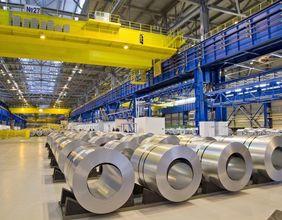Highlights
- Tesla shares experienced a decline following adjustments in market expectations.
- Institutional investors continue to modify their positions, contributing to shifts in market activity.
- The company remains engaged in the development and expansion of electric vehicles and energy solutions.
Electric Vehicle Industry Developments
Tesla (NASDAQ:TSLA) operates in the electric vehicle and energy solutions industry, manufacturing and selling electric vehicles along with energy storage and solar products. The company’s presence extends across multiple regions, including the United States and China, with a focus on sustainable transportation and clean energy initiatives.
As the electric vehicle sector continues to grow, companies in the industry face fluctuations in stock performance influenced by various factors. Tesla remains a key participant in the market, offering an extensive lineup of electric vehicles and related services.
Market Activity and Institutional Holdings
Institutional investors regularly adjust their positions in Tesla, responding to industry trends and financial developments. Market engagement from hedge funds and other investment firms plays a role in shaping stock movement, with portfolio adjustments reflecting broader shifts within the financial sector.
The company’s market presence is influenced by multiple external elements, including production capacity, technological advancements, and industry competition. Institutional holdings highlight ongoing interest in the company’s activities as it continues its focus on innovation in vehicle manufacturing and energy storage solutions.
Financial Performance and Business Segments
Tesla operates through two primary business segments: automotive and energy generation and storage. The automotive division includes the production and sale of electric vehicles, as well as additional services such as vehicle maintenance, used car sales, and supercharging networks. The energy segment focuses on solar energy solutions and battery storage products designed for residential, commercial, and industrial use.
The company remains engaged in expanding its offerings across both segments, with advancements in vehicle technology and energy solutions forming a central part of its business strategy. Developments in these areas contribute to Tesla’s overall market positioning and industry engagement.
Technological Expansion and Industry Growth
Tesla continues to develop new technologies aimed at enhancing electric vehicle performance and efficiency. Innovations in battery technology, software enhancements, and autonomous driving capabilities remain central to the company’s long-term growth initiatives.
The electric vehicle market is evolving, with increasing adoption of sustainable transportation solutions. Companies within the sector are actively working to improve battery efficiency, charging infrastructure, and vehicle affordability to support market expansion. Tesla remains involved in these industry-wide efforts, focusing on research and development to enhance its product lineup.
Industry Position and Competitive Landscape
Tesla’s position in the electric vehicle industry involves engagement with various competitors in both established markets and emerging regions. The company’s production capacity, supply chain efficiency, and ability to adapt to regulatory changes influence its market performance.
As the demand for electric vehicles continues to expand, companies within the sector are exploring new opportunities for growth and innovation. Tesla’s strategic initiatives, including developments in self-driving technology and energy storage, play a role in its competitive standing within the industry.





